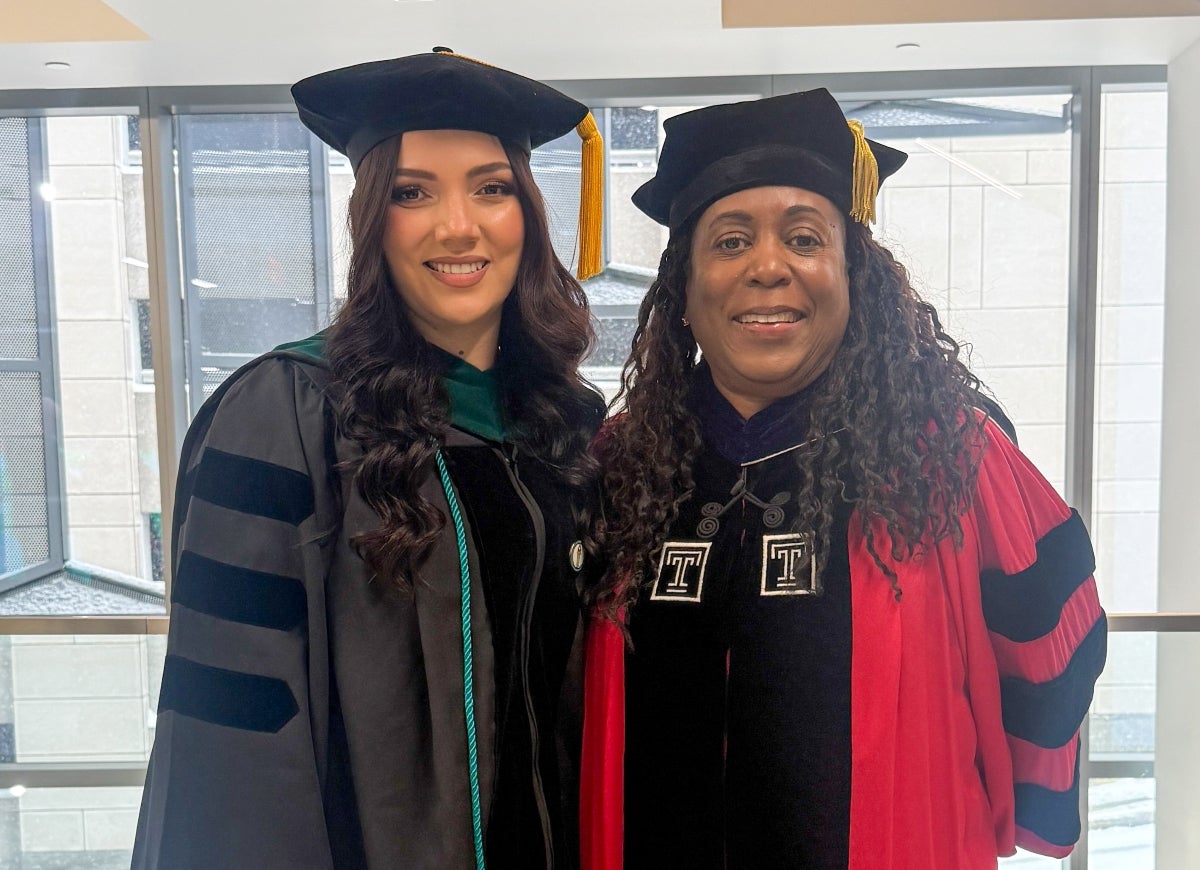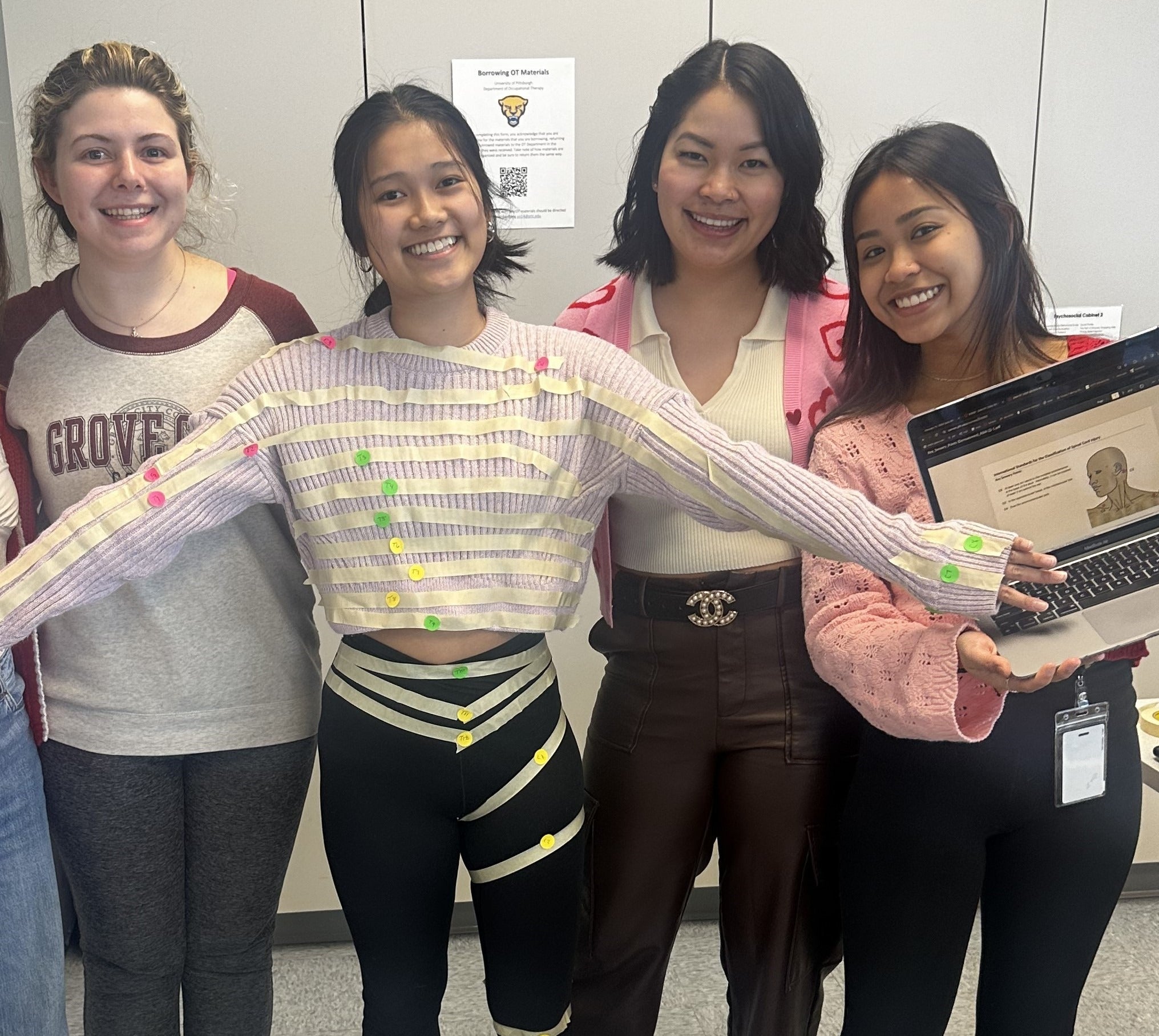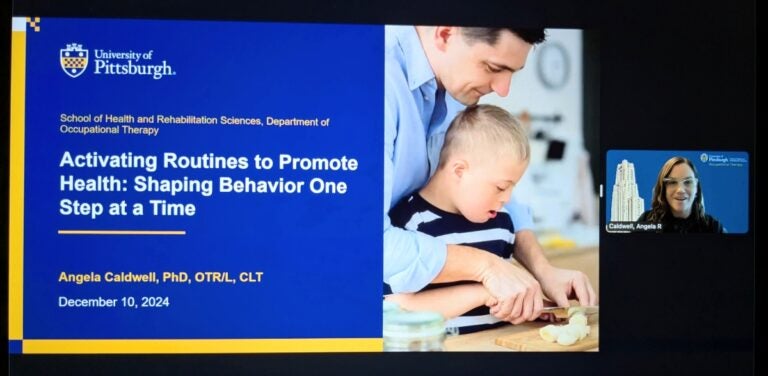- Info For
- Academics
- All Programs
- By Discipline
- Athletic Training
- Audiology
- Chiropractic
- Communication Science
- Counseling
- Emergency Medicine
- Health Informatics
- Nutrition
- Occupational Therapy
- Physical Therapy
- Physician Assistant Studies
- Prosthetics and Orthotics
- Rehabilitation Science
- Rehabilitation Technology
- Speech-Language Pathology
- Sports Science
- Sports Medicine
- Tuition and Scholarships
- Newsroom
- Community
- Research
- Events
- Request for Information
Newsroom

Challenges, Choices, Confidence: The Journey of Hybrid DPT Student Elena Luna-Vazquez
Elena Luna-Vazquez (DPT '24) from Texas is a busy mom who just graduated from the University of Pittsburgh Doctor of Physical Therapy program. Learn more about her experience in the DPT hybrid option and her journey to becoming a new leader in the profession!
Read More
SHRS Interprofessional Star: Assistant Professor Kathryn Reed
Department of Physician Assistant Studies Assistant Professor Kathryn Reed leads by example in the interprofessional areas of health disparities and inequities, preventative care services and patient education in underrepresented groups.
Read More
The Pitt Speech-Language Pathology Clinical Education Experience: Meredith Gould
Meredith Gould (SLP ‘25) is beginning her second year as a master’s student in the Speech-Language Pathology (SLP) program. Here she shares how the program customizes the clinical education for each student and how the Pitt experience is preparing her to better care for her patients as a professional.
Read More
First-Year Doctor of Occupational Therapy Students Share Their Experience
As the past academic year came to an end, we asked first-year Doctor of Occupational Therapy students about their experiences. Learn more about what they had to say about the program!
Read More
Master of Science in Occupational Therapy Alumni Spotlight: Meet Zahraa Khanafer
Zahraa Khanafer (MSOT ’23) grew up in Kuwait and practiced occupational therapy there after receiving her bachelor’s degree. Here, she shares why she chose to study abroad at Pitt OT and how transformative the program has been on her career!
Read MoreSHRS IN THE NEWS
-
3 ways Pitt researchers are making strides in assistive technologyFebruary 17, 2025 | Pittwire
-
Plant-based pitfalls: When can the vegan diet go wrong?February 8, 2025 | Pittsburgh Post-Gazette
-
Running in the cold? Here's why you should think twiceJanuary 22, 2025 | Pittsburgh Post-Gazette
-
Please Don’t Worry About Dieting This Holiday SeasonDecember 13, 2024 | Pittsburgh Magazine
-
Panthers Insider Show with Dr. Tim Suchomel and Stephanie MockDecember 7, 2024 | Panthers Insider Show
Browse by Collection

It's Possible at Pitt

© Copyright 2024 | University of Pittsburgh | School of Health and Rehabilitation Sciences




